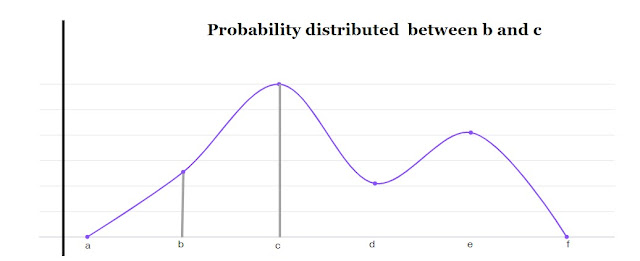TRIGONOMETRY- BASE OF MATHEMATICS
TRIGONOMETRY- BASE OF MATHEMATICS
Trigonometry, The most useful topic in mathematics and others.
The
journey starts in 300BC when Euclid, The Father of Geometry who published his 13-volume
book on geometry named Euclidean Geometry.
BOOK 1
Definition:
(2) A line is a length without breadth.
(8) A
plane angle is the inclination of the lines to one another, when two lines in a
plane meet one another and are not lying in a
straight line.
(10) When a straight-line stood upon(another)
straight-line makes adjacent angles
(which are)
equal to one another, each of the equal angles is a right-angle, and
The former
straight-line is called a perpendicular to that upon with it stands.
(12) An acute angle (is) one less than a right-angle.
Three line formed
a triangle called sides, one condition here is sum of two sides must be larger
than one side. And in the joining of there three angles are formed. But
trigonometry basically deals with Right-Angled-Triangle.
Now
its time to join them, but the question is HOW?
Now up to we
know only a2+b2=c2and A + C = 90°.
Many Greek mathematicians
worked on it. Hipparchus, The Father of Trigonometry who first gives an idea of
this. The
field emerged in the Hellenistic World during the 3rd century BC from applications of geometry to astronomical studies.At this time Indian Astronomy started study of it mainly ARYABHATA who discovered sine function.The Greeks focused on the calculation of chords, while mathematicians in India created the earliest-known
tables of values for trigonometric ratios.
A triangle has
three sides if we get among any two, we get three combination, (Height, Hypotenuse),
(Base, Hypotenuse), (Height, Base). In order to permute this, we get another
three (Hypotenuse, Height), (Hypotenuse, Base), (Base, Height). They take the
ratio of these six combinations and named them respectively on the basis of
angle between Hypotenuse & Base.
This called Trigonometrical Ratios. This make relationship between angle and side. One interesting thing I think you noticed that if you remember from right-angle-triangle we have two unknown angles but here is only one angle, the key point is If we alternate the angle the formula changed on basis of angle so there is no matter in right-angled-triangle which is height or which is base. Relation just alternate.
Now after studying this they discovered many relations among them called Trigonometrical Identities.
Now again we go back to history that days the main thing they measures is the angles (Trigonometrical Angles).
In geometrical angles main drawbacks is ther is no measurement of negetive angles and range of an angle is in between 0° to 360°, this problems are solved in Trigonometrical Angles.
Let us consider OA a fixed line and OB another line which rotates. At first its at OA after that it start rotating if it rotates anti-clockwise and makes an angle AOB this is positive angle and if it rotates clockwise and makes an angle AOB this is negetive angle.
NOTE- The sign of angle only denotes the rotation direction.
Angles not only in range 0° to 360°, another angles are also available in trigonometrical angles.
In trigonometry three systems are mainly used to measured angles
(1) Sexagesimal System
(2) Centesimal System
(3) Circular System
Now days circular system is most useful.
The length of circumference of a circle is given by , where is the radius of the circle.
So the following equivalent relation is true:
[Since a sweep is needed to draw a full circle]
By the definition of radian, a full circle represents:
Combining both the above relations:
- In study of line and angle in a circle another relation of line and angle comes out,
- S=r*θ
- The formula is where s represents the arc length, represents the central angle in radians and r is the length of the radius.
- This method also introduce ourself that we basically used.
Here I mention how trigonometry helped us in daily life and in computing:
(1) SUN WATCH :-

















































Comments
Post a Comment